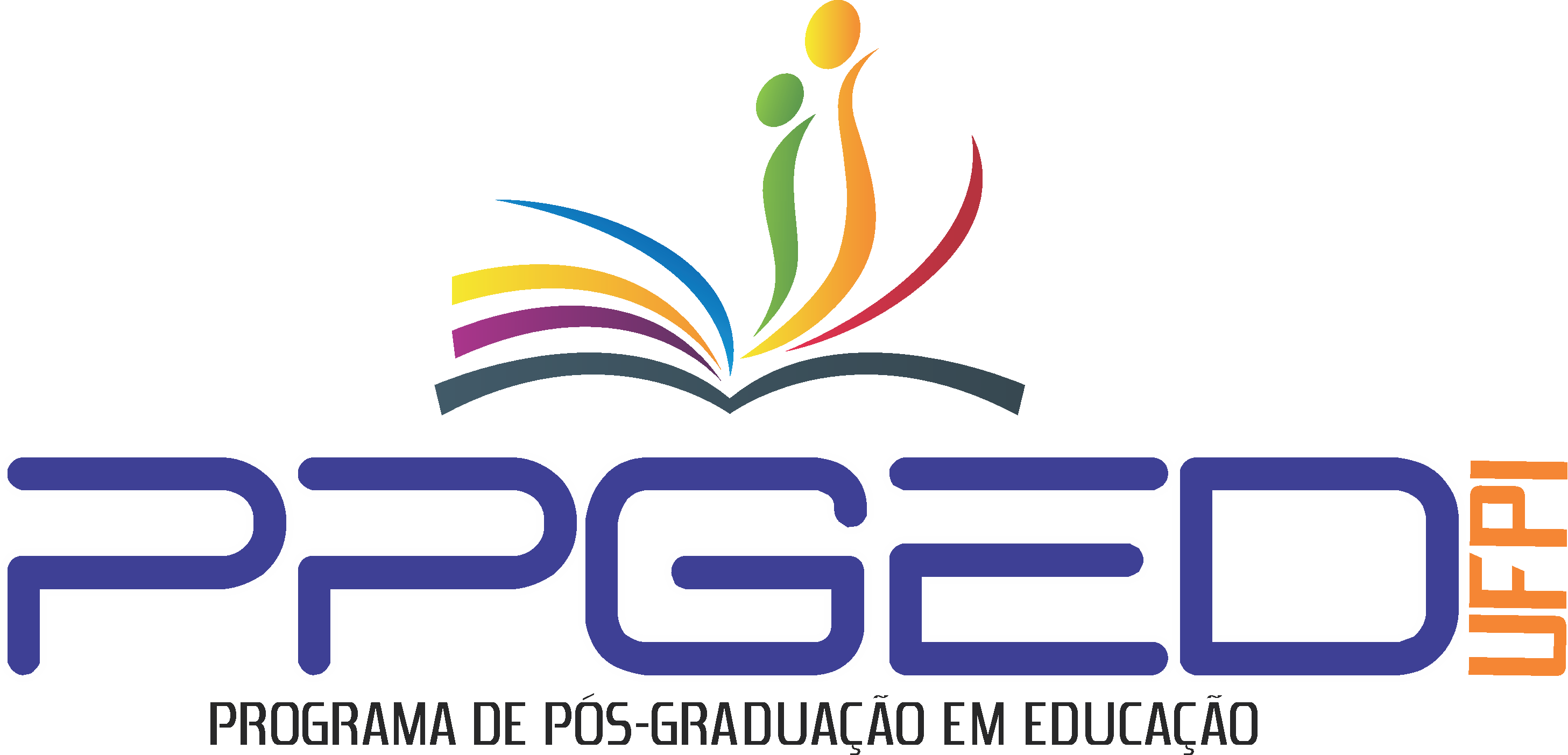“EU GOSTO DOS FEEDBACKS, EU ME SINTO BEM”: PERCEPÇÕES DISCENTES SOBRE EXPERIÊNCIAS DE AVALIAÇÃO DIALÓGICA NO ENSINO SUPERIOR
DOI:
https://doi.org/10.26694/rles.v27i55.3656Palavras-chave:
Avaliação, Feedback, Metacognição, AutoavaliaçãoResumo
Este trabalho tem o intuito de avançar na compreensão teórica e empírica do campo avaliativo no Ensino Superior. O objetivo é evidenciar as percepções dos estudantes do curso de Licenciatura em Letras – Línguas Adicionais da UNIPAMPA a respeito dos avanços e desafios percebidos diante de experiências de avaliação dialógica durante a sua formação inicial. Como forma de análise, utilizamos o software IRAMUTEQ. Na percepção dos entrevistados, avaliar os resultados não é o mais importante, sendo que para entender o processo, é necessário controlar e identificar as dificuldades, usando a honestidade e a parceria com o corpo docente.
Downloads
Referências
ANDRADE, H. L. Students as the definitive source of formative assessment: Academic self-assessment and the self-regulation of learning. In: Handbook of formative assessment. Routledge, 2010. p. 90-105.
ALVES, A.; FELICE, M. I. V. Avaliação formativa: estudo da coavaliação no ensino médio e superior. Intercâmbio. Revista do Programa de Estudos Pós-Graduados em Linguística Aplicada e Estudos da Linguagem. ISSN 2237-759X, v. 25, 2012.
ARINDA, P.; SADIKIN, I. S. Dialogic Feedback to Promote Deep Learning For Efl Speaking Learners In Online Learning Environment: Students’voices. Projetct (Professional Journal of English Education), v. 4, n. 5, p. 803-813, 2021.
CARLESS, D. Learning‐oriented assessment: conceptual bases and practical implications. Innovations in education and teaching international, v. 44, n. 1, p. 57-66, 2007.
CARLESS, D.; BOUD, D. The development of student feedback literacy: enabling uptake of feedback. Assessment & Evaluation in Higher Education, v. 43, n. 8, p. 1315-1325, 2018.
CAMARGO, B. V.; JUSTO, A. M. Tutorial para uso do software de análise textual IRAMUTEQ. Florianopolis-SC: Universidade Federal de Santa Catarina, 2013.CARBONELL, Jaume. A aventura de inovar: a mudança na escola. Artmed, 2002
GEITZ, G.; JOOSTEN-TEN BRINKE, D.; KIRSCHNER, P. A. Changing learning behaviour: Self-efficacy and goal orientation in PBL groups in higher education. International Journal of Educational Research, v. 75, p. 146-158, 2016.
GRILLO, M. C.; FREITAS, A. L. S. de. Autoavaliação: por que e como realizá-la. Por que falar ainda em avaliação, p. 45-49, 2010.
GRIFFIN, P; FRANCIS, M. Escrevendo rubricas. Assessment for Teaching (2ª ed). Cambridge, Reino Unido: Cambridge University Press. 2018.
GRIFFIN, P; FRANCIS, M; ROBERTSON, P. Equipes de ensino colaborativo. Avaliação para Ensino (2ª ed). Cambridge, Reino Unido: Cambridge University Press. 2019.
HOFFMANN, J. O jogo do contrário em avaliação. Mediação, 2011.
InterMeio: Revista do Programa de Pós-Graduação em Educação, Campo Grande, MS, v.20, n.40, p.168-179, jul./dez. 2014
HAUGHNEY, K.; WAKEMAN, S.; HART, L. Quality of feedback in higher education: A review of literature. Education Sciences, v. 10, n. 3, p. 60, 2020.
HILL, J.; WEST, H. Improving the student learning experience through dialogic feed-forward assessment. Assessment & Evaluation in Higher Education, 2019.
AUTOR 2
IRALA, V. B.; MENA, L. P. Avaliação discente na percepção de docentes da educação superior. Estudos em Avaliação Educacional, v. 32, 2021.
LUCKESI, C. C. Que é mesmo o ato de avaliar a aprendizagem na escola? 2000.
MAGALHÃES, M. L.; BORGES-ANDRADE, J. E. Auto e hetero-avaliação no diagnóstico de necessidades de treinamento. Estudos de Psicologia (Natal), v. 6, n. 1, p. 33-50, 2001.
MURILLO, F. J.; HIDALGO, N. Enfoques fundamentantes de la Evaluación de Estudiantes para la Justicia Social. Revista Iberoamericana de Evaluación Educativa, v. 8, n. 1, p. 43-61, 2015.
NICOL, D.. The power of internal feedback: exploiting natural comparison processes. Assessment & Evaluation in Higher Education, p. 1-23, 2020.
ORSMOND, P. et al. Moving feedback forward: theory to practice. Assessment & Evaluation in Higher Education, v. 38, n. 2, p. 240-252, 2013.
OTERO-SABORIDO, F. M.; ESTRADA, F. J. P.; DEVIA, C. P.. Percepción del alumnado universitario de educación física sobre la calificación dialogada. Retos: nuevas tendencias en educación física, deporte y recreación, n. 43, p. 300-308, 2022.
PANADERO, E.; ALONSO-TAPIA, J. Autoevaluación: connotaciones teóricas y prácticas. Cuándo ocurre, cómo se adquiere y qué hacer para potenciarla en nuestro alumnado. Electronic Journal of Research in Education Psychology, v. 11, n. 30, p. 551-576, 2013.
PANADERO, E.; JONSSON, A. A critical review of the arguments against the use of rubrics. Educational Research Review, v. 30, p. 100329, 2020.
POLYDORO, S. A. J.; AZZI, R. G. Autorregulação: aspectos introdutórios. Teoria Social Cognitiva: conceitos básicos. Porto Alegre: Artmed, p. 149-164, 2008.
RODRÍGUEZ-GÓMEZ, G.; IBARRA-SÁIZ, M. S. Assessment as learning and empowerment: Towards sustainable learning in higher education. In: Sustainable learning in higher education. Springer, Cham, 2015. p. 1-20.
REINERT,P. M. Classification descendante hierarchique et analvse lexicale par contexte-application au corpus des poesies D'A. Rihbaud. Bulletin of Sociological Methodology/Bulletin de Méthodologie Sociologique, v. 13, n. 1, p. 53-90, 1987.
RIVEROS, J. M. G. et al. Evaluación formativa: un reto para el docente en la educación a distancia. Delectus, v. 4, n. 2, p. 45-54, 2021.
SADIKIN, I. S. Weblog-Based Learning and Classroom-Based Learning with High, Adequate, and Low Motivation Indonesian Primary EFL Learners. In: First Transnational Webinar on Adult and Continuing Education (TRACED 2020). Atlantis Press, 2021. p. 137-142.
SCHUNK, D. H.; ZIMMERMAN, B. (Ed.). Handbook of self-regulation of learning and performance. Taylor & Francis, 2011.
SERRA-OLIVARES, J. et al. Estilos de aprendizaje y evaluación formativa: Estudio con universitarios de Educación Física chilenos. SPORT TK-Revista EuroAmericana de Ciencias Del Deporte, v. 7, n. 1, p. 129-138, 2018.
UNIVERSIDADE FEDERAL DO PAMPA. Licenciatura em letras. 2014. Disponível em: https://sites.unipampa.edu.br/sisu/cursos/bage/licenciatura-em-letras/. Acesso em: 5 de outubro de 2021.
VOLLMEYER, R.; RHEINBERG, F. A surprising effect of feedback on learning. Learning and Instruction, v. 15, n. 6, p. 589-602, 2005.
WINSTONE, N. E. et al. Supporting learners' agentic engagement with feedback: A systematic review and a taxonomy of recipience processes. Educational Psychologist, v. 52, n. 1, p. 17-37, 2017.













